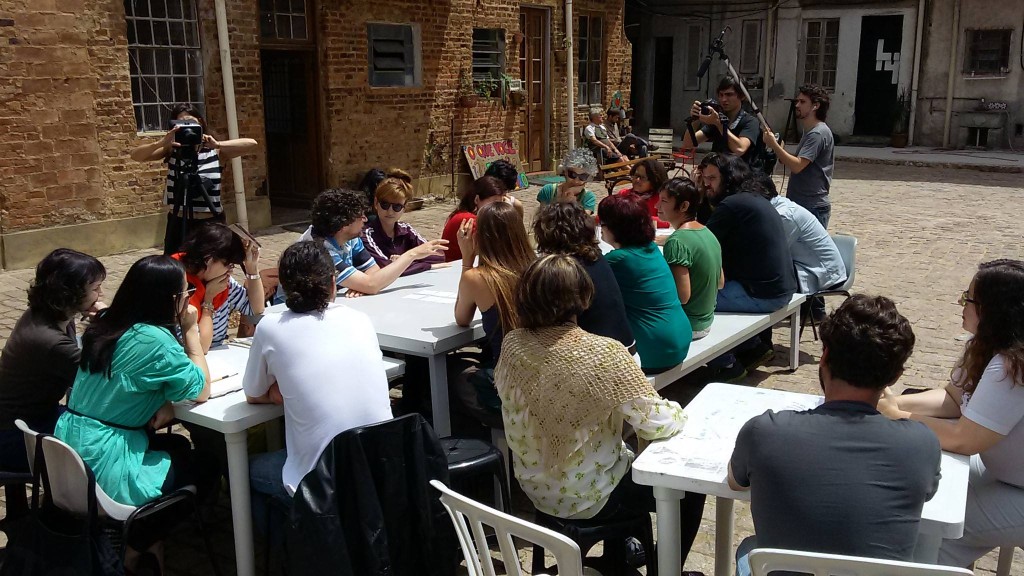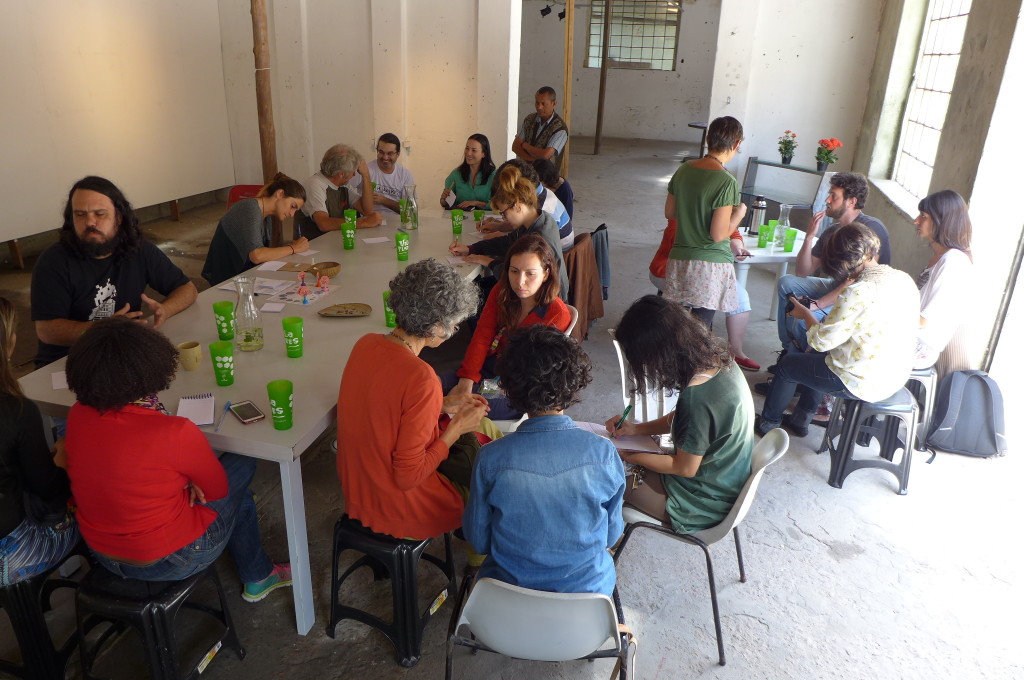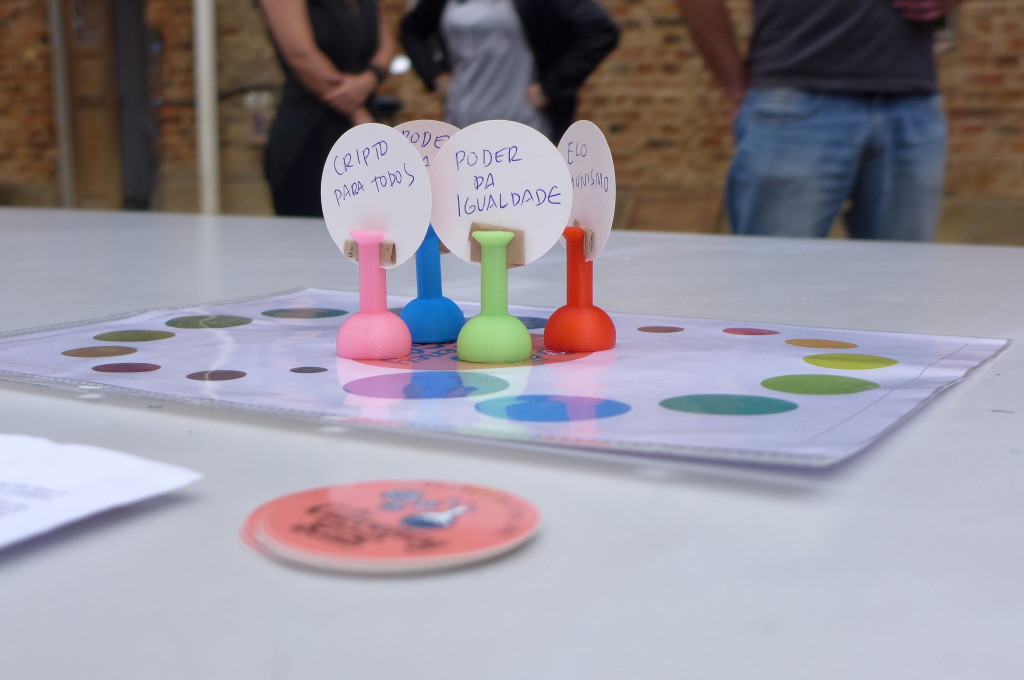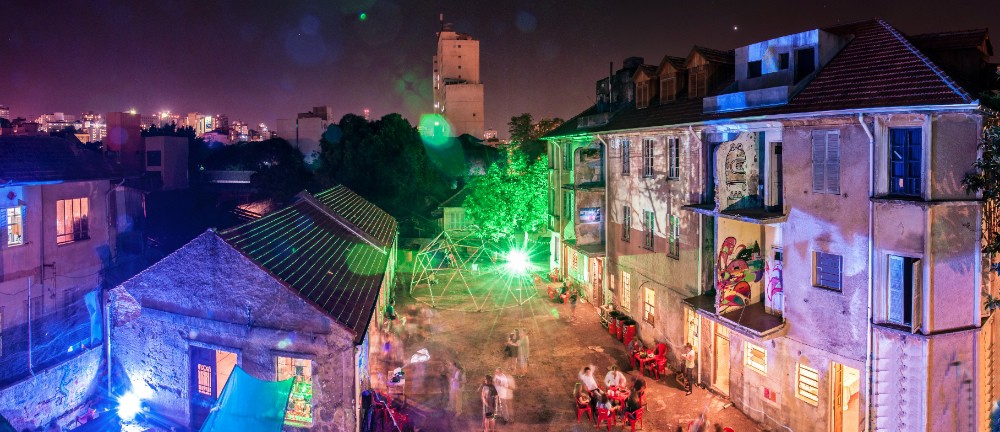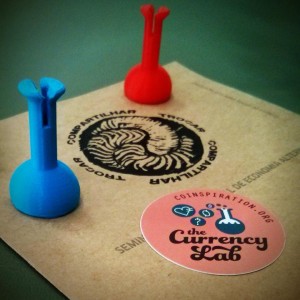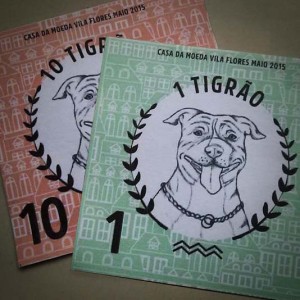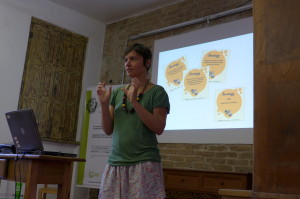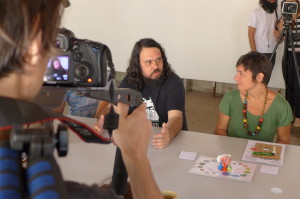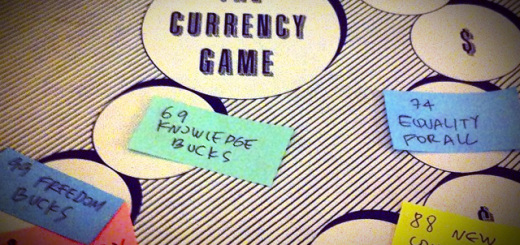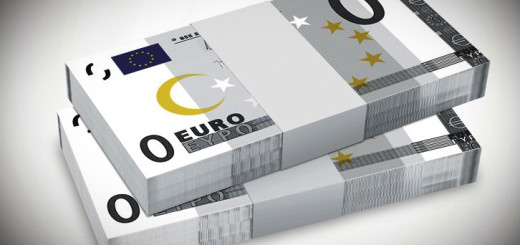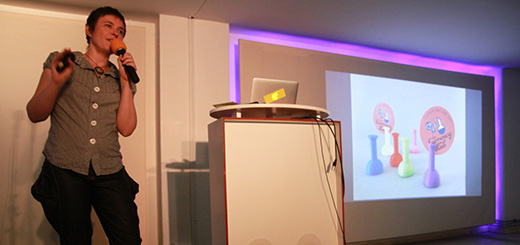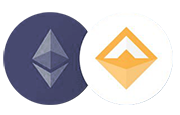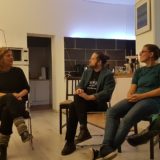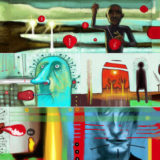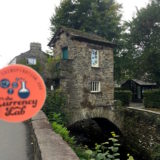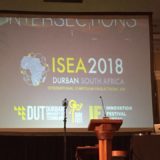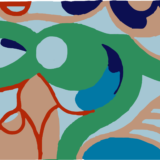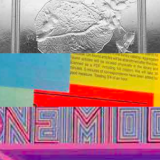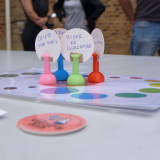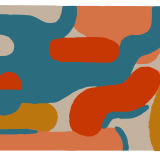Currency Workshop in Brazil
(abaixo versão em português)
Vila Flores is an independent cultural center plus creative space in Porto Alegre, Brazil, and they are developing their own currency, the “Tigrão”. It is named after the neighbor’s dog and means “big tiger” (the dog is a smallish pitbull mix).
Following two days of presentions and discussions about economy and community currencies, we had a playful morning on the third day, and used the CurrencyLab board game as a way to talk about possible challenges the team can face as they develop their currency.
One group for example chose the strategy of “framing your currency as an art project in order to get a grant”. During the discussion their strategy was challenged by someone from another group who had actual experience applying for art grants with the culture ministry in Brazil, and knew in depth their rules about what kinds of activities are excluded from funding. She warned it would be very tricky to frame the project in a way that would allow it to be approved by this program, which is one of the largest sources of funding in Brazil for the arts. As a result they decided to choose a different strategy.
Another challenging and rewarding activity was to translate the cards to Portuguese to allow the group to play more easily. I had experimented with the German-speaking public using the cards in English and translating them on the spot, but with a large group and not so many fluent English speakers, I found it better to print new cards in Portuguese. This worked very well, and hopefully soon we can have an official Portuguese version of the game.
O Vila Flores é um centro cultural independente e espaço criativo que está desenvolvendo sua moeda própria no sul do Brasil, em Porto Alegre. A moeda se chama “Tigrão”, nome do simpático cachorro pit-bull da vizinhança. Em parceria com o Instituto Goethe, eles promoveram o evento “Compartilhar e Trocar”.
Após dois dias de painéis e discussões sobre economia e moedas comunitárias, o terceiro dia teve um formato mais interativo, através do jogo de tabuleiro CurrencyLab (Laboratório de Moedas). No jogo há cartas apresentando desafios, que devem ser vencidos através das cartas de estratégias sorteadas para cada grupo de jogadores. Ambos são baseados em situações reais enfrentadas por moedas alternativas atuais e históricas.
Através do jogo inciamos uma discussão sobre os possíveis desafios que o time poderá enfrentar durante o desenvolvimento de sua moeda.
Em uma das rodadas do jogo, um dos grupos escolheu a estratégia de “enquadrar sua moeda como um projeto de arte para receber financiamento”. Durante a discussão, a estratégia foi questionada por uma integrante de outro grupo que tem experiência prática em solicitar financiamento para projetos artísticos através do Ministério da Cultura. Ela alertou que seria difícil enquadrar esse projeto nas regras dos editais de financiamento atuais. Como resultado, o grupo acabou optando por uma estratégia alternativa.
O jogo foi originalmente criado em inglês, e em outras ocasiões havíamos jogado em alemão, porém com as cartas em inglês e traduzindo à medida que jogávamos. Neste caso, como o grupo era grande e não havia tantas pessoas fluentes em inglês, achamos melhor imprimir uma versão em português das cartas. Apesar de ser uma tradução preliminar, a idéia é lançar em breve a versão oficial do jogo em português, e também em alemão.

